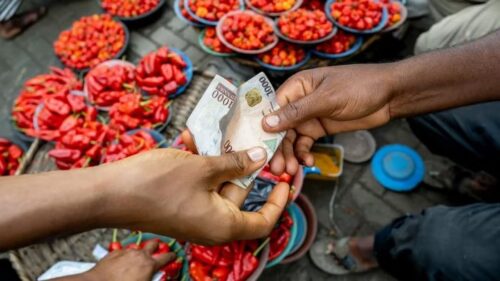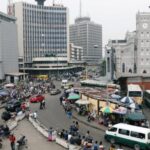
Despite a significant rise in government revenue allocations, millions of Nigerians continue to struggle with economic hardship, high inflation, and declining purchasing power. Since President Bola Tinubu assumed office in 2023, disbursements to federal, state, and local governments have surpassed ₦15.247 trillion in the 2024 fiscal year alone. This represents a 23.3% increase compared to ₦11.69 trillion in 2022 and a higher disbursement than the ₦14.93 trillion recorded in 2023.
However, the sharp increase in revenue has not translated into improved living conditions for Nigerians. Despite total revenue inflows exceeding ₦22 trillion, rising inflation, currency devaluation, and economic instability continue to erode household incomes.
Nigeria’s economy grew by 3.1% in 2024, falling below the government’s projected 3.76% growth rate, according to the International Monetary Fund (IMF). While the unemployment rate declined to 4.3% by the second quarter of 2024, a significant portion of the population remains underemployed, working in informal or low-paying jobs.
Experts attribute the worsening economic conditions to pressures from inflation and exchange rate volatility, which have neutralized the benefits of increased government revenue. Authorities initially projected inflation to ease to 21.4%, but it surged to 34.8% by December 2024, before dropping to 24.48% in January 2025 following the rebasing of the Consumer Price Index (CPI).
Senior economist Paul Alaje of SPM Professionals emphasized that persistent inflation continues to erode the purchasing power of Nigerians, reducing the real impact of increased government revenues. He noted that the depreciation of the naira, which has made imports more expensive, is a key driver of inflation.
“The instability in the Nigerian economy has denied citizens the benefits of surplus revenues generated by the government. Exchange rate fluctuations and price instability are major concerns,” he explained.
According to the World Bank’s Nigeria Development Update (October 2024), many Nigerians remain trapped in “in-work poverty”, where earnings are insufficient to escape poverty. The report emphasizes that economic growth has been too slow to counteract the impact of inflation on purchasing power.
Iniobong Usen, Head of Research and Policy Advisory at BudgIT Nigeria, warned that inflation and currency devaluation have significantly reduced the real value of government revenues. “In 2022, the exchange rate was about ₦380/$, while today it is around ₦1,500/$, meaning the naira has lost about four times its value. The cost of infrastructure projects, essential goods, and services has skyrocketed, negating any perceived increase in government revenue,” Usen stated.
Auwal Musa Rafsanjani, Executive Director of Civil Society Legislative Advocacy Centre (CISLAC), criticized the country’s economic framework, which he described as being plagued by corruption, excessive consumption, and wasteful spending. He stressed that without accountability and transparency, rising government revenues will have little impact on the lives of ordinary Nigerians.
“If the economy is built on reckless spending and corruption, poverty, unemployment, and insecurity will persist. Citizens must hold the government accountable to ensure resources are utilized effectively,” Rafsanjani stated.
As Nigerians continue to face economic difficulties despite increasing government allocations, experts agree that addressing inflation, exchange rate stability, and public accountability remains critical to improving living standards.


